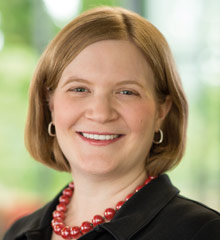Commentary on Psalm 29
Though it is impossible to know what tune accompanied Psalm 29 in its original recitations, the rhythms of its many repeated phrases convey a sense of musicality on their own.1
Repetition remains an effective musical and poetic device today, in sacred and secular contexts alike.
Michael Jackson’s classic pop song “Beat It” has several verses, but even though I can hum the whole tune, the only words I can ever remember are, “Beat it, just beat it …” Those words are repeated throughout the song in both verses and refrains; their frequency and their rhythm make them especially memorable, even when all the other words recede from my consciousness.
In a similar way, Psalm 29 is punctuated by prominent, memorable repetitions that emphasize the main ideas of the poem, ideas that stick with us even if the details fade away. The style of these repetitions, along with thematic similarities to Canaanite poetry, provides evidence to many scholars of the antiquity of this psalm, possibly one of the oldest in the Bible. Even more so, though, the repetitions remind us modern readers of the musical roots of these prayers. Each duplication of a particular phrase serves as a mini-refrain, a catchy lyric that helps us remember the “tune.”
The psalm divides neatly into three sections, each with its own key repeated phrase that summarizes the main idea of the section.
Verses 1–2: “Ascribe to the LORD”
No heavenly being is more glorious than the Lord. Verses 1 and 2 are governed by imperatives directed toward the “heavenly beings,” literally “sons of gods.” In the polytheistic context of the ancient Near East, it was common for religious literature to assert the superiority of one group or region’s favored deity over other gods and goddesses. The psalmist borrows this strategy, taunting other heavenly beings to worship the Lord as the strongest and most glorious deity.
When English translations use “LORD” in capitalized letters, the Hebrew text uses the tetragrammaton, the name of God, rather than the more generic term “God” represented in Hebrew by “Elohim.” In nearly every line of Psalm 29, the name of God appears. This preponderant usage of “LORD” especially makes sense when we consider that the psalmist is naming this particular God as superior to any other claims. God’s name runs like a red thread through the center of the poem, tying together each of these three sections.
Verses 3–9: “The voice of the LORD”
God controls creation. The bulk of the psalm consists of declarations of the might of the voice of the Lord. Three powerful elements of creation—waters, woods, and fire—are pitted against the voice (or, translated more generically, “sound”) of the Lord. God is unmatched by the might of any of them.
In Canaanite religion the god Baal was envisioned as a storm-god, a “cloud-rider,” and this psalm is clearly indebted to that description. The images of power and destruction here recall post-tornado landscapes that we see all too often in the news: the cedars break, fires rage, the wilderness shakes, the oaks whirl. In this psalm we are not, however, to see God as the cause of such destructive natural forces; rather, in order to understand the totality of God’s power, we observe the world around us. When we have noted the most powerful forces we can see, we know: the voice of the Lord is all of this together, yet even more.
God’s power as manifested in the confrontations with elements of creation in verses 3–9 goes hand-in-hand with God’s dominion. Not only is God as powerful as all of these; God controls all these. The “voice of the LORD” stanzas provide evidence for why God should be praised. At the end of verse 9, then, having been presented with this evidence, there is nothing left but for all in God’s temple to say, “Glory,” just as verses 1–2 have implored.
Verses 10–11: “The LORD sits enthroned”
God is king. The idea of God as king encompasses, particularly in the ancient context, the pinnacle of power and might. Just as earthly power-plays leave one ruler besting the rest, so too is God superior to any other claim to authority on earth or in the heavens. The Lord’s subjects—that is, those who worship God and recognize his supreme authority—look forward to God’s benevolent rule.
In the context of Trinity Sunday, Psalm 29 can serve as a meditation on the first person of the Trinity: God as creator, sovereign, king.
The appointed Old Testament reading for the day, Isaiah 6:1–8, is a dramatic description of just the kind of worship scene that the opening lines of Psalm 29 imagine. The seraphim cry out with their own threefold repetition, “Holy, holy, holy is the LORD of hosts; the whole earth is full of his glory” (verse 3). God, enthroned, is worshipped by heavenly beings who ascribe to the Lord the glory of his name.
Even without music, the musicality of this psalm, underscored by the poetic technique of repetition throughout, helps us hear the psalm’s main theme: God’s glory and majesty are unmatched on earth or in the heavens. We human beings, along with the universe in its entirety, are subjects of the sovereign Lord.
Notes
- Commentary first published on this website on June 3, 2012.


May 26, 2024